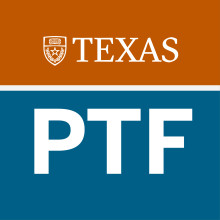Individual Fellow Initiatives

Does Increasing Course Depth While Reducing Breadth Improve Learning in College Students?
Student-centered learning strategies have been effectively used to increase academic performance and learning in students. Educators have hypothesized that course content reduction can also improve student learning. However, support for this idea is lacking. In the present project, I am planning to assess whether a content reduction strategy increases the academic performance of upper-division stem students at the University of Texas-Austin.

Artful Learning: Integrating Art into Teaching Practice
This project aims to transform academic instruction by integrating art into the classroom. We believe that art can make subjects more engaging and help students connect with the material on a deeper level. By integrating diverse forms of art—such as virtual art, music, film, theater, and more—into the curriculum, we aim to create a more interactive and stimulating learning environment while also supporting students' mental health through therapeutic art sessions.

Longhorn Mindfulness Project
This project focuses on mental health on campus. Specifically, the mental health and self-regulation challenges that mindfulness practices have been empirically shown to address: anxiety, depression, focus, and procrastination. There is strong empirical support for these benefits emerging around the 8-week mark of regular practice (10-15 minutes per day), which is feasible in the confines of the semester calendar.

Internship in the Media Industries
Internships have increasingly become a critical step in the college-to-career transition in the media industries and beyond.

Engineering Sentences: A Cross-Disciplinary Training Program
Although Cockrell School of Engineering (CSE) undergraduates take a required engineering writing class, which I teach for Chemical Engineering, they typically struggle with writing laboratory and long-form research reports. Helping CSE students to overcome this obstacle matters because writing technical reports prepares engineering students for the writing-intensive work of a professional engineer. Faculty teaching these classes would also benefit from higher quality student work.

Race, Democracy, and Global Social Justice: How Studying Inequality and Vulnerability can Transform the World
My initiative will achieve better learning outcomes in undergraduate and graduate students in History and the LBJ School by examining the intersection of history and contemporary policy, specifically its disparate impact on communities of color. Currently, departments, centers, faculty and students work independently of one another and lack valuable opportunities to collaborate. Genuine collaboration has evolved into a rare and difficult concept.

Data Analysis Tools: Integrating Computational and Statistical Techniques in the Environmental Engineering Curriculum
The goal of this project is to train the next generation of environmental engineers in computing and statistical techniques to solve big data problems. Current undergraduate students in the Department of Civil, Architectural and Environmental Engineering have little to no exposure to computational and statistical methods for data analysis (e.g., big data collected from sensor networks). I proposed to integrate computational techniques in several courses throughout the Environmental Engineering Degree.

Global Learning Experiences
Cross-cultural connections can deepen student engagement in the world around them and encourage their creativity about the course material. Such connections can happen in a UT classroom if the student body is particularly diverse, or if students participate in study abroad programs. Global connections are also being created through the Global Classrooms Initiative that connect UT students with students at universities from other countries through classroom activities, conversations and projects intentionally designed to encourage collaboration.

Freshman Opportunities for Research in the Geosciences (FORGe)
I am working on a unique partnership between Austin Community College (ACC) and UT Austin to develop collaborative peer learning communities (PLCs) in the Geosciences with mixed cohorts of two-year college (2YC) and four-year college (4YC) students.

From Putting in Time to Meaningful Civic Engagement: Transforming Service Learning in an Undergraduate Social Work Program
As a Provost’s Teaching Fellow, Vicki Packheiser is transforming Experiential Learning in Social Work’s foundational courses. This two-course sequence has long required 45 hours of service learning per course with a community agency. Social Work pre-majors contribute 10,000+ hours of service to the Austin community, serving as UT ambassadors while they gain experience that grounds their academics in future years. But the implementation has not lived up to the potential.

Empowering Undergraduate Entrepreneurship at UT: The Longhorn Entrepreneurship Ambassador Program
Austin is a hotbed for innovation and entrepreneurship, and yet, until recently The University of Texas at Austin provided few structured undergraduate programs focused intentionally on entrepreneurship. That realization propelled PTF Luis Martins to propose the creation of a minor in entrepreneurship as his PTF project. The Entrepreneurship Minor, offered by the McCombs School of Business and open to all undergraduate students at UT Austin, is now a reality, and began accepting applications in February.

The Collaboratory: Interdisciplinary, Arts-based Pedagogy for Use in New and Emerging Learning Environments
One of the top concerns from many employers is that college graduates lack the “soft skills” (collaboration, team-based skills)and professionalism they require. Collaboratory students will have the opportunity to master the latest skills in their field and develop “soft skills” like creative problem-solving problem solving and communication to help them thrive over the course of their careers.

Curiosity to Question: a Multidisciplinary Open-Inquiry Course Focused on Research Design
Hands-on research experiences for undergraduates offer unique active-learning experiences with real-world questions. These experiences create communities and improve 4-year graduation rates. They may also help create a student body and alumni population that recognize the importance of the research mission of large R1 universities.

Peer Learning Assistant Program Guidelines and Curricula
The Peer Learning Assistant Program within the Department of Chemistry is a program developed with resources from the Provost Teaching Fellows program to enhance the educational experience of students taking general chemistry by training and employing Peer Learning Assistants (PLAs) to service large blended general chemistry courses. The large (300 –500 students) blended courses have replaced the straight lecture model with active, student centered, learning. Active learning requires coaching and in a large class it is impossible to implement with only one instructor and one tea

